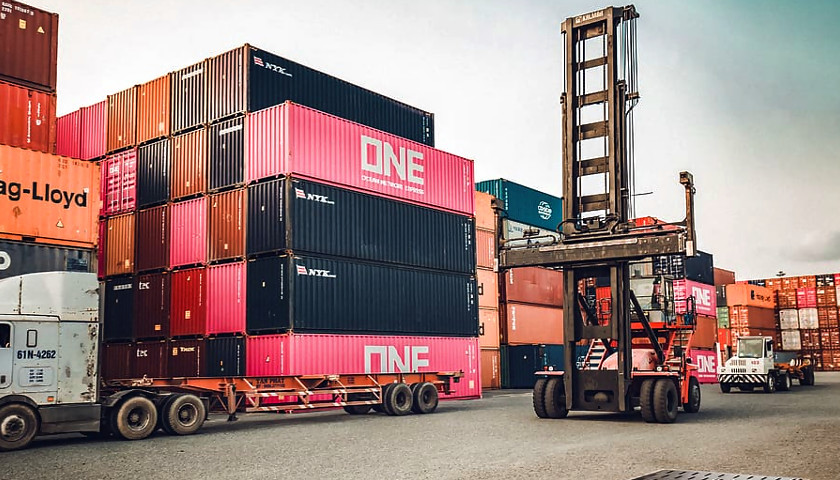Sens. Marsha Blackburn (R-TN) and Roger Wicker (R-MS) introduced a bill this week to engage public-private partnerships toward strengthening supply chains in Tennessee and the region.
Current bottlenecks in shipping have translated to fewer goods on store shelves and higher prices for American consumers. Their causes are multifaceted and include high labor costs, cumbersome union work rules and the COVID-19 pandemic.
“Our nation is in the midst of a supply chain crisis,” Sen. Blackburn said in a statement. “Backlogs at local ports have resulted in delays for Tennessee truck drivers and train conductors transporting goods to store shelves. My Improving Chassis Capacity for Memphis’s Supply Chain Act is a state-specific solution that will make supply chains more efficient for Tennesseans.”
Her legislation would tackle an issue specifically frustrating shipping in Memphis, a problem underscored by the Federal Maritime Commission: Lack of something called a “single gray chassis pool.”
Chassis are metal frames with wheels onto which shipping containers are set so they can be transported on roads. Years before the coronavirus pandemic, the commission’s report noted, Memphis’s rail hub suffered from a shortage of chassis, many of which were old and sitting in pools that could not be accessed by all shippers.
The commission called for a single chassis pool that is interoperable or “gray.” The Blackburn-Wicker bill would utilize private companies to create such a storage area for a city that connects five class-one railroads and boasts the fourth-largest inland port.
Because of Memphis’s centrality to the movement of goods across the U.S., the inability so far to establish a single gray pool is contributing to shipping inefficiencies that are being felt by American consumers from west to east, according to heads of the Memphis & Shelby County Port Commission and several companies supporting Blackburn and Wicker’s legislation.
“The American Cotton Shippers Association applauds Senator Blackburn and her team for their diligent work to make local supply chain stakeholder’s recommendations actionable,” said American Cotton Shippers Association President Buddy Allen. “Enhancing chassis interoperability is a common sense approach to addressing current supply chain challenges and will expedite the movement of cotton from the interior to points of export and domestic consumption, increasing the competitiveness of U.S. agriculture.”
Neely Mallory III, chairman and chief executive officer of Mallory Alexander International Logistics, and Donna Lemm, chief customer officer of IMC Companies truckers, joined Allen in cheering for the bill’s passage.
Rep. David Kustoff (R-TN-8) has introduced a companion bill in the House of Representatives.
“My bill will encourage collaboration between logistics stakeholders to help modernize chassis provisioning and increase freight capacity,” Kustoff said. “More importantly, it will allow the private sector to step into this process and help enhance the movement of freight in the Memphis region. I thank Sen. Blackburn for joining me in introducing this much needed legislation, and I look forward to its quick passage.”
– – –
Bradley Vasoli is a reporter at The Tennessee Star and The Star News Network. Follow Brad on Twitter at @BVasoli. Email tips to [email protected].








